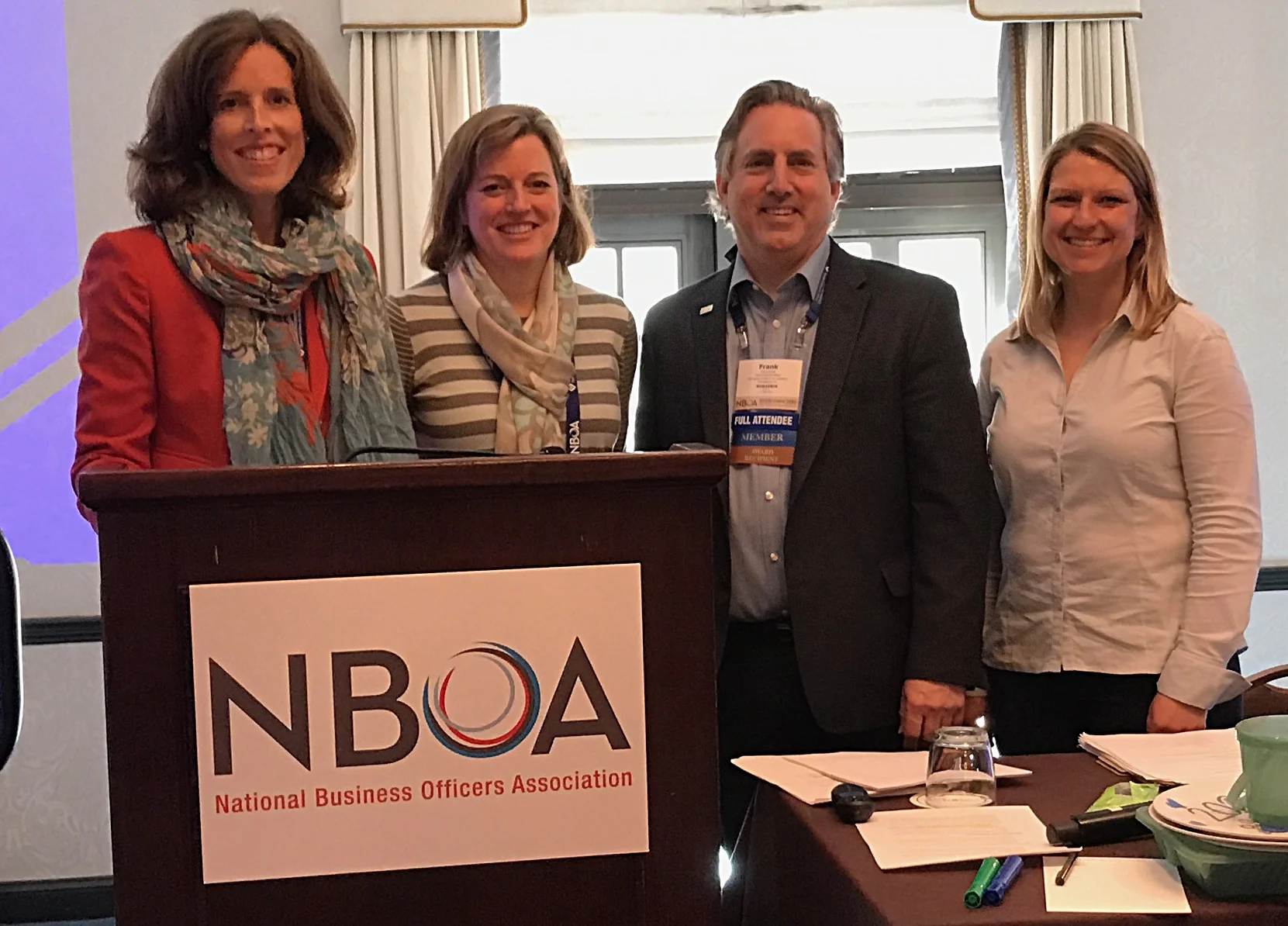Boyer Sudduth’s intern, Lizi Barrow, recently caught up with two sustainability movers and shakers at Friends’ Central School: Communications & Summer Programs Manager, Katherine Clayton and Lower School Science Teacher, Tiffany Borsch. Here’s what they had to say:
Friends’ Central’s Communications & Summer Programs Manager, Katherine Clayton enjoying a weekend hike with her dog.
Lower School Science Teacher, Tiffany Borsch, in Friends’ Central’s school garden.
Why are you committed to sustainability?
Katherine Clayton: Working with the younger generation, we know that climate change is one of the biggest things impacting their future. We want to practice what we preach on campus and inspire students to live sustainably. We want to empower them with information and surround them with like-minded adults who support them.
Tiffany Borsch: I've been working in education for sustainability for over 20 years, with ages spanning Kindergarten to college. It's been a ride that I had hoped would end because of environmental successes, but the work keeps expanding and becoming more and more important. I have witnessed the work morph from institutional changes like recycling and paper choices, to systemic changes that reach beyond the borders of the campus.
What is a memorable project you worked on at your school relating to sustainability?
Clayton: Last year we were able to host a DIY event where we made bags out of T-shirts for our community. It was a small group, but it was a great opportunity to bring people together to learn a new "skill" in repurposing. We were also able to host our annual Plant Sale for Faculty/Staff in April with virtual purchases and contactless pickup - it was a total success!
Borsch: Last year, I started a climate change project with my 5th grade students. They studied the science of climate change through examining the creation and combustion of fossil fuels, the structure of the atmosphere and the greenhouse effect. Then, they were able to take their understanding of global climate impacts to understand the solutions given by Project Drawdown. In teams the students studied one solution from Project Drawdown and created PSAs around the following guiding questions - What is the problem this solution is trying to solve, what is the solution and why, and how can people enact this kind of change.
When not at school, where are you most likely to be found? Or, what’s a fun fact about you that most people don’t know?
Clayton: Although I live in the city and love the surprising simplicity that goes along with that (smaller space, easy walking, access to local food), I go on frequent hikes to get back in touch with nature with my husband and my dog.
Borsch: I love gardening and camping with my family. When I teach, I am happiest being outdoors!
Looking forward, what are some of your sustainability hopes and dreams? Who or what inspires you to remain committed to this vision?
Clayton: We hope we can re-energize the community in the post pandemic world. We all learned to “live without” during this time. Our first Quaker SPICE, Simplicity, is synonymous with a sustainable life. Our students inspire us to remain committed, since they are the future!
Borsch: I hope that we haven't lost momentum through this pandemic. I am hopeful that the new federal administration will right the wrongs of the current one. I am continuously inspired by the youth - their passion and commitment and innovative ways of getting things done.
Anything else you’d like to share?
Clayton and Borsch: Having a committee for adults to connect on issues of sustainability is helpful. Even if it's slow going to get any actionable items off the ground, the initial conversations can be cathartic for everyone.
Written by Lizi Barrow, Sustainability Intern, Boyer Sudduth Environmental Consultants, on a gap year before attending Bates College, fall 2021.






















